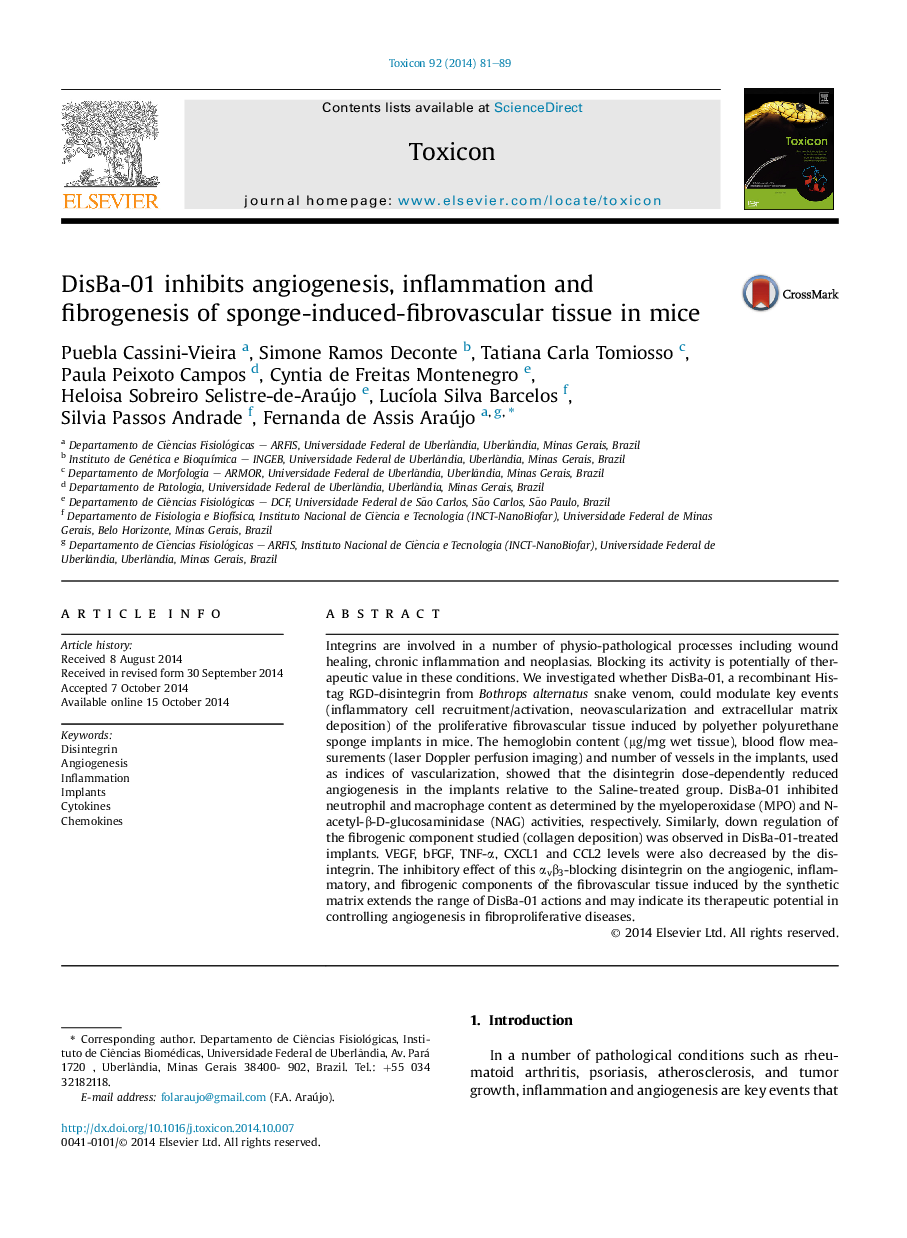| Article ID | Journal | Published Year | Pages | File Type |
|---|---|---|---|---|
| 8395947 | Toxicon | 2014 | 9 Pages |
Abstract
Integrins are involved in a number of physio-pathological processes including wound healing, chronic inflammation and neoplasias. Blocking its activity is potentially of therapeutic value in these conditions. We investigated whether DisBa-01, a recombinant His-tag RGD-disintegrin from Bothrops alternatus snake venom, could modulate key events (inflammatory cell recruitment/activation, neovascularization and extracellular matrix deposition) of the proliferative fibrovascular tissue induced by polyether polyurethane sponge implants in mice. The hemoglobin content (μg/mg wet tissue), blood flow measurements (laser Doppler perfusion imaging) and number of vessels in the implants, used as indices of vascularization, showed that the disintegrin dose-dependently reduced angiogenesis in the implants relative to the Saline-treated group. DisBa-01 inhibited neutrophil and macrophage content as determined by the myeloperoxidase (MPO) and N-acetyl-β-D-glucosaminidase (NAG) activities, respectively. Similarly, down regulation of the fibrogenic component studied (collagen deposition) was observed in DisBa-01-treated implants. VEGF, bFGF, TNF-α, CXCL1 and CCL2 levels were also decreased by the disintegrin. The inhibitory effect of this αvβ3-blocking disintegrin on the angiogenic, inflammatory, and fibrogenic components of the fibrovascular tissue induced by the synthetic matrix extends the range of DisBa-01 actions and may indicate its therapeutic potential in controlling angiogenesis in fibroproliferative diseases.
Related Topics
Life Sciences
Biochemistry, Genetics and Molecular Biology
Biochemistry, Genetics and Molecular Biology (General)
Authors
Puebla Cassini-Vieira, Simone Ramos Deconte, Tatiana Carla Tomiosso, Paula Peixoto Campos, Cyntia de Freitas Montenegro, Heloisa Sobreiro Selistre-de-Araújo, LucÃola Silva Barcelos, Silvia Passos Andrade, Fernanda de Assis Araújo,
